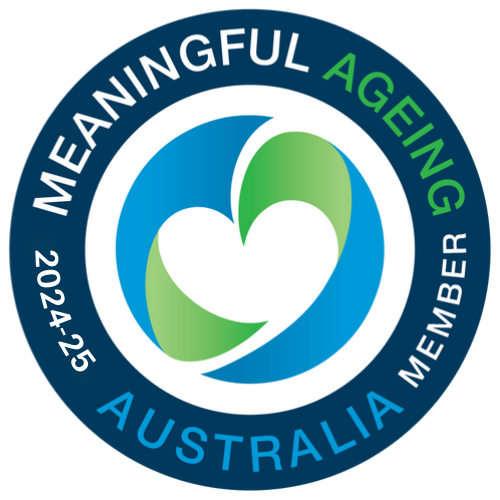Vision loss can be a difficult transition, especially for the elderly. A supportive and understanding caregiver can make a significant difference in the lives of visually impaired seniors.
When it comes to caring for our loved ones, ensuring their overall well-being becomes our top priority. This is especially true when they start to experience vision loss. As part of Vital Home Health Services in Australia, we are committed to providing comprehensive care for the elderly.
In this blog, we aim to help caregivers understand the process and challenges of vision loss in elderly and how to effectively support their loved ones through this difficult time.
Effects of Vision Loss in The Elderly
Vision loss can affect an individual’s quality of life significantly, impacting them physically and psychologically. In the elderly, this can lead to difficulties in performing everyday tasks and increasing their dependency on others, resulting in a feeling of helplessness or depression.
Understanding the effects of vision loss in the elderly is the first step in providing the needed care and support. Some of the effects include a higher risk of falls and accidents, changes in lifestyle, difficulty reading and the inability to complete personal care and domestic tasks.
Above everything, caregivers need to be patient, understanding, and empathetic when dealing with these challenges in elderly patients.

Common Causes of Vision Loss in Elderly Patients
As carers, we should make ourselves familiar with the common causes of vision loss among our elderly patients. While not an exhaustive list, here are some of the most common conditions:
1. Age-related Macular Degeneration (AMD)
AMD is a leading cause of vision loss in people aged 60 and older. It happens when the small central portion of the retina, known as the macula, wears down. The macula is responsible for central vision and allows us to see objects clearly. This condition doesn’t lead to complete blindness but can significantly impair central vision, affecting daily activities like reading, driving, and recognising faces.
2. Glaucoma
Glaucoma is a complex disease that causes damage to the eye’s optic nerve and can result in vision loss and blindness. The optic nerve carries visual information from the eye to the brain, and any damage can have serious implications for sight. It’s often associated with higher-than-normal pressure inside the eye, and if left untreated, glaucoma can cause irreversible vision loss. This is why regular eye examinations are so crucial, particularly as we age.
3. Cataracts
Cataracts are very common among the elderly. They cause the lens of the eye to become clouded, which leads to blurred vision. The lens of the eye works much like a camera lens, focusing light onto the retina for clear vision. It also adjusts the eye’s focus to let us see things both up close and far away. The lens is mostly made of water and protein, and when these proteins clump together, a cataract can form. Luckily, cataracts can be corrected with a common and safe surgical procedure.
4. Diabetic Retinopathy
This is a complication of diabetes that affects the eyes. It’s caused when blood vessels in the tissue at the back of the eye, known as the retina, leak fluid or hemorrhage, distorting vision. In its most advanced stage, new abnormal blood vessels proliferate on the surface of the retina, which can lead to serious vision problems. Keeping diabetes under control can prevent this condition from progressing.
Understanding these common conditions that cause vision loss in elderly patients can empower caregivers with the knowledge needed to provide the most effective support.
Seeking Help for Visually Impaired Seniors
Offering help for visually impaired seniors requires thoughtful planning and the implementation of various strategies that foster a conducive living environment. This involves making physical adjustments to their living spaces and providing them with supportive tools to aid in their day-to-day activities.
The implementation of these strategies is simple but makes a world of difference. Caregivers, as advised by Aging Care, can consider installing better lighting fixtures around the house, especially in areas that require precision like the kitchen or study room. This can significantly improve their visibility and reduce their risk of accidents. To further minimise risks, we should also aim to reduce the glare from windows and screens by using curtains, blinds, or anti-glare films.
The usage of contrasting colours can also be an invaluable tool to distinguish objects or areas within the home. Consider painting door frames a contrasting colour to walls or use different coloured plates to the tablecloth during meals. These strategies can help visually impaired seniors navigate their environment more comfortably and independently.
Aid in daily activities can also come in the form of tangible tools like large-print books, which are easier on the eyes and reduce strain. Audiobooks offer another excellent alternative, giving seniors the freedom to enjoy their favourite stories without the struggle of reading small prints. Moreover, advancements in technology have led to the development of assistive tools like screen-reading software, which converts digital text into spoken word, empowering them to surf the web or check their emails independently.
Beyond the physical needs, we must not forget the importance of emotional support. Vision loss can feel isolating and challenging to cope with. As caregivers, we must encourage visually impaired seniors to partake in social activities that foster a sense of community and belonging. Providing companionship, whether by spending quality time together or through regular conversations, can help combat feelings of loneliness. Our role is not just to aid in their physical needs but to provide a shoulder to lean on, a listening ear, and a caring heart.
Final Words
Caring for an elderly loved one with vision loss can be challenging, but with understanding and the right resources, you can provide the support they need. Remember that every person’s experience with vision loss is different, so individualised care is crucial. Home carers can assist you in this journey, offering professional and compassionate care to your loved ones.
At Vital Home Health, our home care services are designed to cater to the unique needs of visually impaired seniors. Our team is trained to create a safe and comfortable environment that promotes their independence and overall wellbeing.
References:
- Aging Care (n.d.). “Making Life Easier for Older Adults with Low Vision”. Retrieved from https://www.agingcare.com/articles/making-life-easier-for-older-adults-with-low-vision-177792.htm.
- World Health Organisation (2021). “Vision Impairment and Blindness”. Retrieved from https://www.who.int/news-room/fact-sheets/detail/blindness-and-visual-impairment.
- NHS (n.d.). “Age-Related Macular Degeneration”. Retrieved from https://www.nhs.uk/conditions/age-related-macular-degeneration-amd/.








